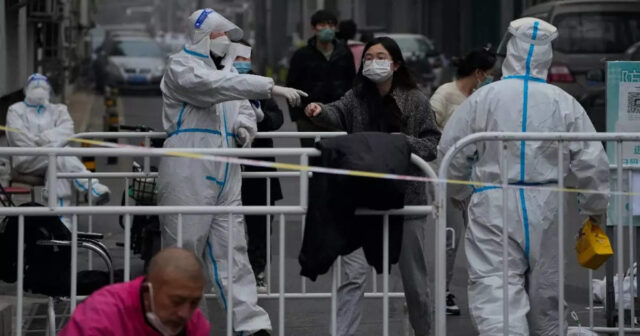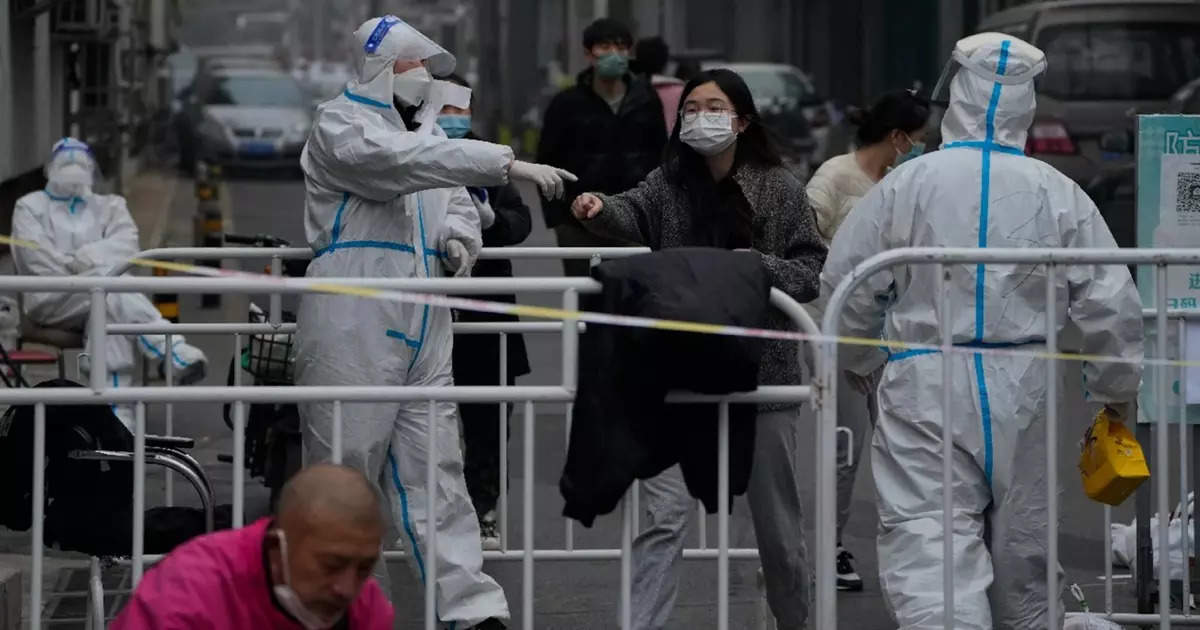
NEW DELHI: China has reported a decrease in the number of patients visiting fever clinics since New Year’s Day, but health authorities warn of a potential rebound in Covid-19 cases in January. This update was provided by the National Health Commission, as reported by the China-based Global Times.
During a press briefing, National Health Commission spokesperson Mi Feng noted a fluctuating downward trend in the number of patients at fever clinics. However, respiratory diseases, predominantly influenza, are still prevalent, with Covid-19 infections remaining at a relatively low level.
Recent data from a multi-channel monitoring system revealed that the positivity rate for Covid-19 in sentinel hospitals has stayed below one percent after New Year’s Day. Wang Dayan, director of the China National Influenza Center at the China CDC, highlighted an upward trend in the proportion of the JN.1 variant strain of Covid-19.
Experts anticipate that various respiratory pathogens, including influenza, will continue to circulate or alternate during the winter and upcoming spring. Influenza viruses are expected to remain dominant in the short term.
Wang Dayan expressed concerns about a potential Covid-19 resurgence due to the continuous importation of the JN.1 variant, a decrease in domestic influenza cases, and a decline in population immunity. The JN.1 variant is likely to become the dominant strain in China.
In terms of influenza trends, the southern provinces of China saw the season start in early October, with the H3N2 subtype initially predominant. However, the proportion of influenza B virus has been rising, now accounting for 36.8 percent in the south and 57.7 percent in the north. In some regions, influenza B has even surpassed influenza A.
Wang emphasized that immunity from influenza A does not effectively protect against influenza B, highlighting the risk of contracting influenza B even after recovering from influenza A. High-risk individuals are advised to get vaccinated against influenza annually.
Addressing a news conference, Wang Guiqiang from Peking University First Hospital underscored that winter is a peak season for respiratory diseases. He noted that immunity from infections is not long-lasting, allowing for possible reinfections, often with milder symptoms. He cautioned that infections with different pathogens could exacerbate conditions, especially after damage to the upper respiratory mucosa, leading to secondary bacterial infections. This is particularly concerning for the elderly and those with underlying conditions.
In preparation for the winter vacation and Spring Festival, with expected large-scale movement and gatherings, Mi Feng stressed the need to strengthen monitoring and early warning of respiratory diseases. He also called for providing timely health consultation and referral services, particularly for vulnerable groups such as the elderly, pregnant women, children, and those with chronic diseases. Efforts should be made to facilitate vaccinations and optimize medical resources and treatment processes.
During a press briefing, National Health Commission spokesperson Mi Feng noted a fluctuating downward trend in the number of patients at fever clinics. However, respiratory diseases, predominantly influenza, are still prevalent, with Covid-19 infections remaining at a relatively low level.
Recent data from a multi-channel monitoring system revealed that the positivity rate for Covid-19 in sentinel hospitals has stayed below one percent after New Year’s Day. Wang Dayan, director of the China National Influenza Center at the China CDC, highlighted an upward trend in the proportion of the JN.1 variant strain of Covid-19.
Experts anticipate that various respiratory pathogens, including influenza, will continue to circulate or alternate during the winter and upcoming spring. Influenza viruses are expected to remain dominant in the short term.
Wang Dayan expressed concerns about a potential Covid-19 resurgence due to the continuous importation of the JN.1 variant, a decrease in domestic influenza cases, and a decline in population immunity. The JN.1 variant is likely to become the dominant strain in China.
In terms of influenza trends, the southern provinces of China saw the season start in early October, with the H3N2 subtype initially predominant. However, the proportion of influenza B virus has been rising, now accounting for 36.8 percent in the south and 57.7 percent in the north. In some regions, influenza B has even surpassed influenza A.
Wang emphasized that immunity from influenza A does not effectively protect against influenza B, highlighting the risk of contracting influenza B even after recovering from influenza A. High-risk individuals are advised to get vaccinated against influenza annually.
Addressing a news conference, Wang Guiqiang from Peking University First Hospital underscored that winter is a peak season for respiratory diseases. He noted that immunity from infections is not long-lasting, allowing for possible reinfections, often with milder symptoms. He cautioned that infections with different pathogens could exacerbate conditions, especially after damage to the upper respiratory mucosa, leading to secondary bacterial infections. This is particularly concerning for the elderly and those with underlying conditions.
In preparation for the winter vacation and Spring Festival, with expected large-scale movement and gatherings, Mi Feng stressed the need to strengthen monitoring and early warning of respiratory diseases. He also called for providing timely health consultation and referral services, particularly for vulnerable groups such as the elderly, pregnant women, children, and those with chronic diseases. Efforts should be made to facilitate vaccinations and optimize medical resources and treatment processes.





































